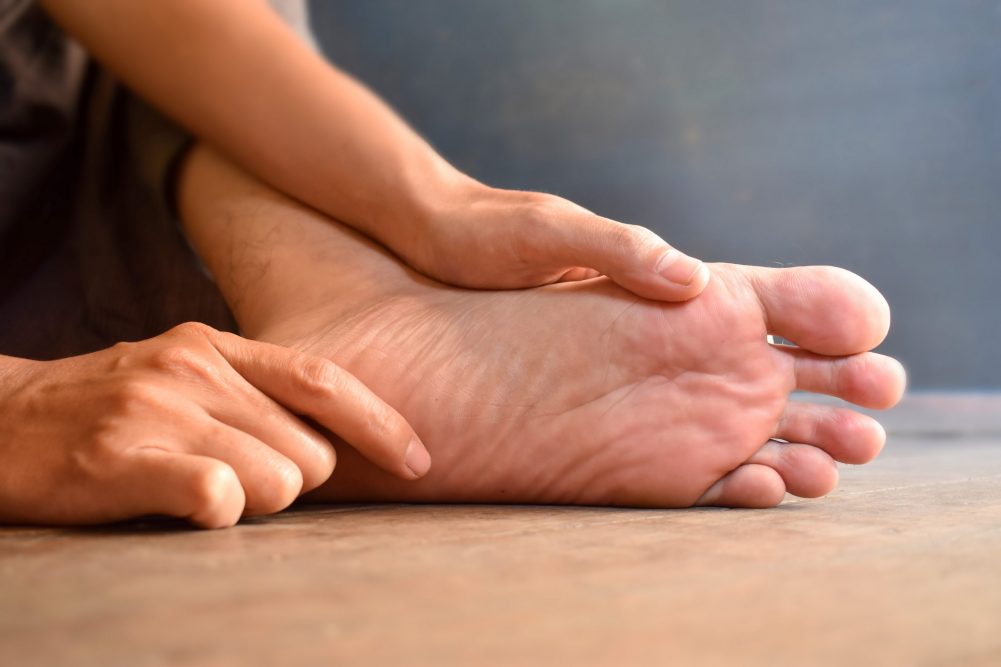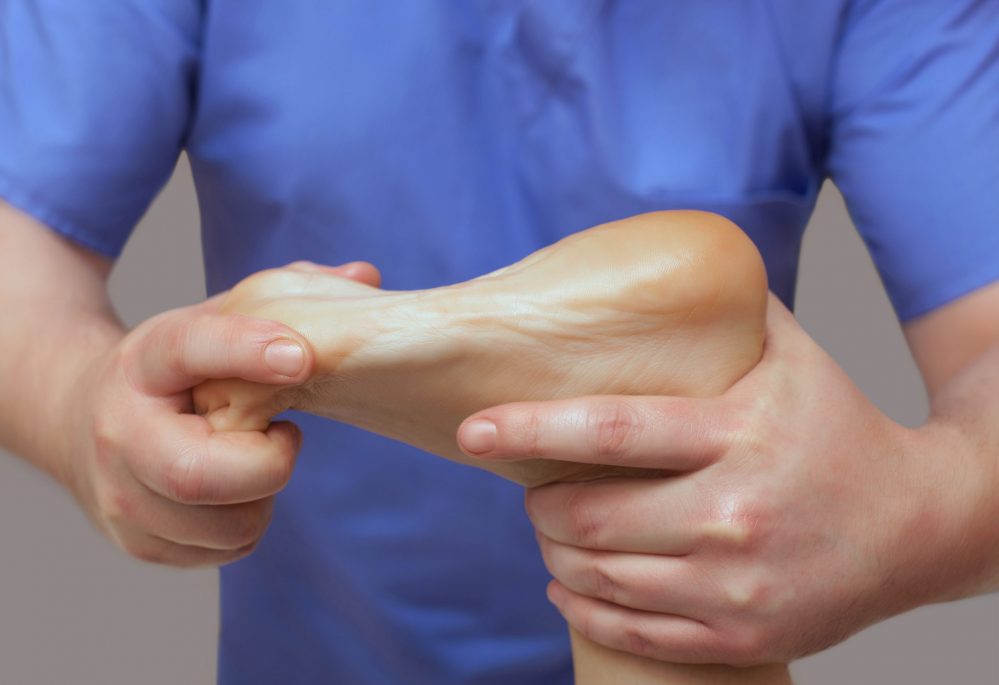Plantar Fasciitis
Living with chronic heel pain is frustrating and exhausting. Even the simplest tasks, like getting out of bed or standing in line at the grocery store, cause discomfort. You want to be more active, but your heel pain keeps you from living life to the fullest.
If you feel like your heel pain is causing you to miss out on all the things you want to do, you’re not alone. At our office, we help dozens of patients overcome their heel pain every year and start taking life in full stride.
Heel pain is highly treatable because its most common cause, plantar fasciitis, is one of the most well-researched foot conditions.
Plantar fasciitis is inflammation of the thick band of tissue connecting your heel bone to your toes. Anyone can develop plantar fasciitis, and it affects more than 3 million people each year. Although it’s disruptive, it’s not untreatable. In fact, with the advice from our doctors, many patients go on to heal their heel pain completely.
Symptoms of Plantar Fasciitis
- Sore, painful heels whenever you put weight on your feet.
- A sharp, sudden pain in your heels when you get out of bed in the morning.
- A jolting pain in your heels when you move after sitting or laying down.
- Heel pain that worsens after exercise, but not always during it.
Many people with plantar fasciitis find that their pain is worse in the morning and gradually decreases as they move. It’s most commonly triggered when you get up from sitting or resting for a while.
What Causes Plantar Fasciitis?
Inflammation of the plantar fascia, a strong ligament running through the foot, causes plantar fasciitis. The plantar fascia connects your heel bone (calcaneus) to the arch of your foot.
The truth is that no one is 100% certain of what causes plantar fasciitis, and there are several factors that could be at fault, such as:
- Bone structure. Some people’s feet have a structure that naturally makes them more prone to heel pain. If you have flat feet or high arches, you’re more likely to develop plantar fasciitis.
- Weight distribution. Where you place your body weight as you walk could irritate the plantar fascia and cause heel pain.
- Overuse. Our feet are built to withstand a lot, but they have their limits, too. Spending too much time walking, running, climbing, or even just standing without rest can damage the fascia and cause heel pain. When this happens, plantar fasciitis is classified as a sports injury.
- The wrong shoes. Shoes that lack adequate support in the arches can cause serious heel pain. Improper footwear can also alter the way you walk, which forces you to distribute weight differently, placing greater strain on your fascia.
- Standing for long periods of time. Many jobs involve being on your feet throughout the day. Teachers, nurses, doctors, contractors, and many other professionals are all more likely to develop plantar fasciitis, especially when they’re standing on hard surfaces.
How to Treat Plantar Fasciitis
There are plenty of ways you can treat plantar fasciitis at home. Most cases are able to resolve with self-care and some lifestyle changes. Here are some things our doctors may suggest to help you manage your condition.
- The RICE method. Rest, ice, compression, and elevation can all help alleviate stress on the fascia and reduce inflammation. Ask our doctors which level of compression would be right for your condition.
- Over-the-counter pain relievers. Non-steroidal anti-inflammatory drugs can help ease heel pain by inhibiting the cyclooxygenases (COX) enzymes, which may reduce pain and inflammation.
- Corticosteroid injections. Also known as cortisone shots, corticosteroid injections reduce inflammation and alleviate pain in your feet. Shots are usually given every six weeks and offered no more than four times a year.
- Physical therapy. A stretching and exercise routine that targets the plantar fascia can be an effective way to reduce pain and manage any symptoms.
- Night splints. Wearing night splints stretches your calves and arch, which can result in less pain when you wake up.
- Lifestyle/activity adjustments. You may be able to treat your plantar fasciitis by changing your routine, wearing better-fitted shoes, and modifying some of your activities to provide your feet with greater support.
- Custom orthotics. If you have any biomechanical problems, custom shoe insoles alleviate your heel pain by offering targeted support in all the areas you need it most.
The goal of our treatment plans has two main objectives. First, we want to eliminate any pain that you currently have. Second, we want to stop it from returning in the future.
Therefore, finding the best treatment for plantar fasciitis has to be done on a case-by-case basis. Everyone’s body, lifestyle, and circumstances differ, so they need personalized treatment to get the best care for their feet.
Plantar Fasciitis Rupture
In extreme cases, the plantar fascia can suffer from large tears or rupture. This is most common in cases of trauma to the foot, like making a hard landing from a fall, or doing an intense movement while playing sports or exercising.
Plantar fasciitis ruptures come on as sharp, sudden pain, and they can also lead to bruising and chronic inflammation.
Treatment for plantar fasciitis rupture can include wearing a cast or boot, and taking anti-inflammatory and pain relief medications, which may include corticosteroid injections. In cases of severe tears or ruptures, patients may need surgery to repair the plantar fascia completely.
Find Relief From Your Heel Pain
Rediscover how to live without being slowed down by your heel pain. At our Ladera Ranch podiatry office, we help patients find freedom from stubborn symptoms by creating customized care plans to support their bodies and lives.
Make an appointment by calling us at (949) 364-9255 (WALK), or filling out our online form. Let us help you overcome your heel pain soon.
Contact Us
Ladera Ranch
333 Corporate Dr. Ste 230, Ladera Ranch, CA 92694
Tel: (949) 364-9255 (WALK)
Fax: (949) 364-9250
Office Hours:
Monday - Friday: 9am - 5pm
*(Lunch 12 noon - 1pm)
Orange
2617 E Chapman Ave. Ste 303, Orange, CA 92869
Tel: (714) 639-7993
Fax: (714) 639-0729
Office Hours:
Monday - Friday: 9am - 5pm
*(Lunch 12 noon - 1pm)


